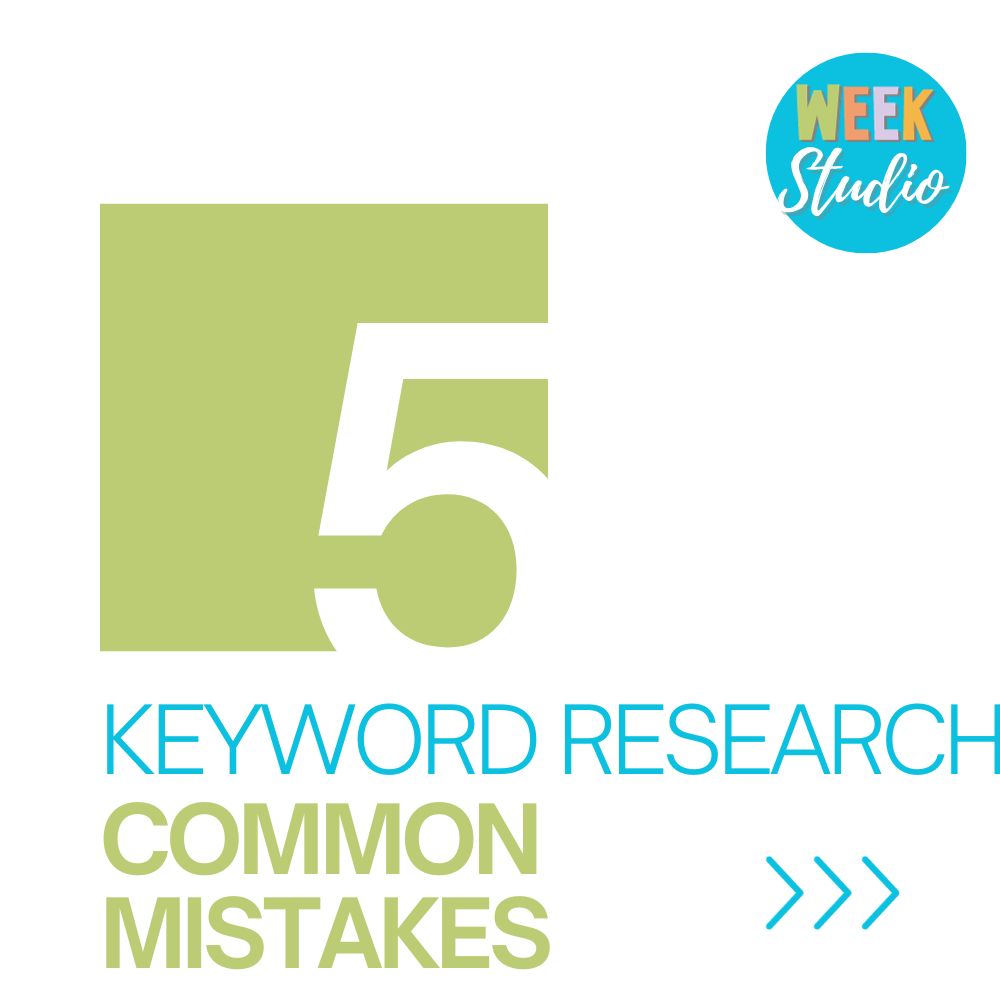In the dynamic realm of digital marketing, where algorithms shape destinies and visibility is paramount, one fundamental practice reigns supreme Keyword Research. This introductory section serves as a gateway to unravel the intricacies of a process that holds the key to online success. In the vast expanse of the internet, where countless voices compete for attention, the ability to harness the power of keywords becomes a strategic imperative. Whether you’re a seasoned marketer or a novice entrepreneur, understanding the essence of keyword research is akin to possessing a treasure map in the digital age.
At its core, keyword research is the compass that guides your online content to the eyes of your target audience. It’s more than just identifying words relevant to your business; it’s about deciphering the language your potential customers use when seeking information or solutions. Imagine your website as a beacon in the vast sea of the internet. Keyword research is the lighthouse that ensures your light is not only seen but sought after. It’s the foundation upon which successful SEO strategies are built, influencing everything from website structure to content creation.
In an era where the battleground for consumer attention is virtual, the significance of keyword research becomes even more pronounced. Search engines, led by the mighty Google, have evolved into gatekeepers determining who gets the spotlight and who remains in the shadows. Understanding the language of search queries is not merely a technicality; it’s a bridge that connects businesses with their potential customers. It’s about decoding the queries users type into search engines and aligning your content to be the answer they seek.
As we embark on this journey into the heart of keyword research, we’ll traverse the basics, explore advanced strategies, dissect the tools of the trade, and gaze into the future. This comprehensive guide aims to demystify the nuances of keyword research, providing you with actionable insights to propel your online presence.
So, fasten your seatbelts as we delve into the art and science of selecting the right keywords, understanding user intent, navigating the tools that shape your strategy, and ultimately, carving a path toward digital prominence. Welcome to the world of Keyword Research, where every search query is a potential gateway to your success.
Understanding Keyword Research

Keyword research, the cornerstone of effective SEO strategies, is more than a mere compilation of relevant words. It’s a strategic exploration into the language of your target audience, a journey that goes beyond the surface to uncover the phrases that resonate and drive organic traffic to your digital doorstep.
Definition of Keyword Research
At its essence, keyword research involves identifying and analyzing the terms and phrases people use when searching for information online. It’s the process of understanding the language your audience speaks in the vast landscape of the internet. In simpler terms, it’s about knowing the words potential visitors type into search engines when seeking products, services, or answers.
The goal is not just to compile a list of words but to decipher the intent behind them. What are users looking for, and how can your content provide the most relevant and valuable answers? By understanding this, keyword research becomes a strategic tool for optimizing your content to align with the needs and queries of your target audience.
Importance for SEO
Why does keyword research hold such paramount importance in the realm of SEO? The answer lies in the very nature of search engines. When a user enters a query, search engines deploy complex algorithms to sift through the vast sea of web content and deliver the most relevant results.
This relevance is determined, in large part, by the presence of keywords. The more accurately your content reflects the language users use in their queries, the higher the likelihood that search engines will deem your content worthy of being displayed prominently. In essence, keyword research is the compass that guides your content to the top of search engine results pages (SERPs).
Understanding the importance of keywords and how they intertwine with SEO is the foundational step toward crafting a digital strategy that not only attracts visitors but converts them into loyal customers. It’s the art of speaking the language of your audience in a way that resonates with search engines and, by extension, with potential customers.
As we delve deeper into this exploration, we’ll unravel the intricacies of selecting the right keywords, examine the balance between long-tail and short-tail options, and explore the world of competitive analysis. Join the journey as we uncover the secrets to unlocking the true potential of keyword research.
The Art of Selecting Keywords

With a foundational understanding of what keyword research entails and why it’s indispensable for SEO, let’s now dive into the artistry of selecting keywords. This section explores the nuances of choosing the right keywords to fuel your digital success.
Relevance to Your Niche
The first brushstroke in this artistic process is understanding the importance of relevance. Keywords must be more than popular terms; they need to be intrinsically tied to your niche. Consider this: if you’re a boutique coffee roaster, ranking high for “best coffee beans” is undoubtedly valuable, but “artisanal small-batch coffee beans” might bring in a more targeted audience. In selecting keywords, relevance to your specific offerings is key.
Long-Tail vs. Short-Tail Keywords
Now, let’s explore the canvas of long-tail and short-tail keywords. Short-tail keywords, often one or two words, boast high search volumes but also intense competition. Long-tail keywords, on the other hand, are more specific phrases with lower search volumes but often higher conversion rates. It’s a delicate balance. Picture short-tail keywords as broad brushstrokes, capturing attention, and long-tail keywords as finer details, attracting a more focused audience.
Competitive Analysis
No artwork is created in isolation, and neither is your keyword strategy. Competitive analysis adds depth to your palette. Investigate what keywords your competitors are targeting. This not only reveals potential gaps in their strategy but also provides inspiration for your own. By understanding the competitive landscape, you can strategically position yourself, ensuring your keywords are both relevant and distinctive.
As you navigate the canvas of keyword selection, remember that each stroke contributes to the overall masterpiece of your SEO strategy. The art lies not only in the selection of keywords but in their seamless integration into your content creation process. In the following sections, we’ll explore the tools that can refine this artistry further, ensuring your digital presence is a captivating masterpiece in the eyes of both users and search engines. Join us as we uncover the brushes and colors that bring your keyword strategy to life.
Tools of the Trade

In the realm of keyword research, wielding the right tools is akin to an artist selecting the finest brushes and pigments. This section delves into the arsenal of tools that can elevate your keyword research from a basic sketch to a detailed masterpiece.
Google Keyword Planner
As the cornerstone tool provided by the search giant itself, the Google Keyword Planner is a palette of insights into search behavior. It offers a wealth of data, from search volumes to competition levels. By tapping into this tool, you gain a clearer picture of which keywords are worth investing your efforts in. Picture it as the primary color palette, allowing you to lay down the broad strokes of your keyword strategy.
SEMrush and Ahrefs
Now, let’s explore the brushes that add finesse to your keyword artistry – SEMrush and Ahrefs. These robust tools go beyond the basics, offering a more intricate view of keyword landscapes. They unveil not just what keywords are relevant but also how your competitors are using them. SEMrush and Ahrefs are like the detail brushes, enabling you to paint with precision and understand the nuances that set you apart in the digital canvas.
The synergy of these tools is where the true artistry of keyword research unfolds. Google Keyword Planner provides the broad strokes, while SEMrush and Ahrefs refine the details. The key is not just to use these tools but to master them, understanding how their insights interplay to shape a comprehensive keyword strategy.
As we move forward, we’ll explore the trends shaping the future of keyword research. From the rise of voice search to the importance of user intent, our journey takes us beyond the tools and into the evolving landscapes of digital communication. Join us as we uncover the next chapter in the saga of strategic SEO – a narrative where every stroke and color choice contributes to the vivid portrait of your online presence.
Trends in Keyword Research

In the ever-evolving digital landscape, staying ahead requires not only mastering current strategies but also anticipating future shifts. This section delves into the emerging trends in keyword research, shedding light on the factors that will shape the way we navigate the vast ocean of online information.
Voice Search Optimization
Imagine a world where users don’t type queries but speak them. Welcome to the era of voice search, a trend reshaping the very fabric of keyword research. With the proliferation of voice-activated devices, users are adopting a more conversational tone in their searches. Keywords are transforming into full-fledged sentences and questions. Successful keyword research must now consider not only what users type but how they speak, opening new avenues for long-tail conversational keywords.
User Intent
Beyond the words themselves, understanding the intent behind a search query is becoming increasingly crucial. Search engines are becoming adept at deciphering user intent, serving results that align not just with the keywords but with the user’s underlying needs. The art of keyword research now extends beyond mere words to the psychology behind them. What does the user truly want, and how can your content fulfill that desire? This shift demands a more empathetic and user-focused approach to keyword selection.
As we embrace these trends, the landscape of keyword research is expanding, challenging us to think beyond traditional strategies. The brushes we use to paint our keyword canvas must now capture the nuances of human conversation and intention. In the next section, we’ll explore common pitfalls in keyword research and how to navigate them, ensuring that your masterpiece doesn’t fall prey to oversights. Join us as we dissect the intricacies of effective keyword selection, keeping pace with the evolving nature of digital communication.
Common Keyword Research Mistakes

In the quest for digital visibility, even the most seasoned marketers can stumble. This section shines a spotlight on common pitfalls in keyword research, ensuring that as you navigate the path to SEO success, you avoid the stumbling blocks that can hinder your journey.
Ignoring Long-Term Trends
In the fast-paced digital arena, it’s tempting to chase short-term trends. However, a myopic focus on what’s popular today can lead to neglecting long-term strategies. Keywords that stand the test of time often bring sustained traffic and better conversion rates. While it’s essential to adapt to current trends, a balanced approach that incorporates enduring keywords ensures the longevity and stability of your SEO efforts.
Overlooking Negative Keywords
In the pursuit of visibility, the importance of negative keywords is often underestimated. These are the words you don’t want associated with your content. For instance, if you offer premium products, the last thing you want is to attract visitors searching for “free” or “discounted” items. Neglecting negative keywords can lead to irrelevant traffic, diluting the quality of your audience. A meticulous approach to both positive and negative keywords is crucial for refining your strategy.
Avoiding these common mistakes requires a strategic mindset. It’s not just about finding the right keywords; it’s about finding the keywords that align with your long-term goals and filter out the noise that can distract and detract from your objectives. In the next section, we’ll transition from pitfalls to practical implementation, exploring how to seamlessly integrate your keyword research findings into a content creation process that resonates with both search engines and human readers. Join us as we bridge the gap between keyword selection and compelling content creation.
Implementing Keyword Research Strategies

Keyword research is not a standalone activity; its true power is unlocked when seamlessly integrated into your content creation process. In this section, we’ll explore practical strategies for implementing your keyword research findings, ensuring that your content not only aligns with search engine algorithms but resonates with your human audience.
Integration with Content Creation
Imagine your keyword strategy as the blueprint for a captivating story. Your selected keywords are the narrative threads woven into the fabric of your content. As you craft blog posts, articles, or product descriptions, ensure that your chosen keywords are organically embedded. Avoid forced incorporation; instead, let the keywords guide the narrative naturally. This harmony between keywords and content not only appeals to search engines but, more importantly, engages and informs your human audience.
Remember, the goal is not just to rank high on search engine results pages but to provide valuable, informative, and enjoyable content for your audience. Keywords should enhance the user experience, not hinder it.
Regular Updates and Adaptation
The digital landscape is dynamic, and so should be your approach to keyword research. Regularly revisit and update your keyword strategy to align with shifting trends and user behavior. New technologies, changes in user preferences, and updates to search engine algorithms can all impact the effectiveness of your chosen keywords.
Consider your keyword strategy as a living entity that evolves alongside the digital ecosystem. This adaptive mindset ensures that your content remains relevant and continues to attract the right audience over time.
As we transition from strategy to measurement, the next section will explore the metrics and analytics that gauge the success of your keyword research efforts. From organic traffic growth to conversion rates, these metrics provide insights into the impact of your chosen keywords on your overall digital performance. Join us as we navigate the metrics landscape and uncover the true measure of your keyword strategy’s success.
Measuring Success: Metrics and Analytics

With your keywords seamlessly integrated into your content, the next crucial step is to measure their impact. This section explores the key metrics and analytics that serve as benchmarks for the success of your keyword research efforts.
Organic Traffic Growth
The cornerstone metric for assessing the effectiveness of your keyword strategy is organic traffic growth. Analyze the increase in the number of visitors driven to your site through organic search. A well-optimized keyword strategy should contribute to a steady and sustainable growth in organic traffic over time.
Consider the trends and patterns in your organic traffic. Are there spikes following the implementation of specific keywords? Monitoring these fluctuations helps you understand which keywords are resonating most with your audience.
Conversion Rates
Beyond attracting visitors, the ultimate goal is to convert them into customers or subscribers. Conversion rates measure the percentage of visitors who take a desired action, whether it’s making a purchase, filling out a form, or signing up for a newsletter.
Evaluate how your chosen keywords influence conversion rates. Are there particular keywords associated with higher conversion rates? Understanding this correlation allows you to refine your keyword strategy, focusing on terms that not only attract traffic but also drive valuable actions.
As we conclude our exploration of metrics, the next section will peer into the future of keyword research. From artificial intelligence to evolving search engine algorithms, understanding the trends shaping the landscape is essential for staying ahead in the ever-evolving digital arena. Join us as we gaze into the crystal ball of digital marketing and unravel the potential shifts that lie ahead.
Future of Keyword Research

As technology continues to advance and user behaviors evolve, the future of keyword research is poised for transformation. In this section, we’ll explore the trends and innovations that are likely to shape the landscape of keyword research in the coming years.
Artificial Intelligence and Machine Learning
The integration of artificial intelligence (AI) and machine learning into search algorithms is set to redefine how we approach keyword research. Search engines are becoming more adept at understanding context, user intent, and even nuances in language. AI-powered tools can analyze vast datasets, providing deeper insights into emerging trends and user behaviors.
As we move forward, leveraging AI in keyword research will not only streamline the process of identifying relevant keywords but also enhance our understanding of user preferences. Embracing AI-driven solutions will be pivotal for staying at the forefront of the rapidly evolving digital marketing landscape.
Evolving Search Engine Algorithms
The algorithms governing search engines are in a constant state of evolution. Keeping pace with these changes is crucial for effective keyword research. Search engines are becoming more sophisticated in interpreting user queries, prioritizing content that aligns with user intent.
In the future, search engine algorithms may place even greater emphasis on user experience signals, such as dwell time and engagement metrics. Staying ahead will require a dynamic approach, with an increased focus on user-centric content that not only incorporates keywords but also provides genuine value.
As we navigate the evolving landscape of keyword research, the final section will serve as a conclusion, summarizing key takeaways and emphasizing the enduring importance of a well-crafted keyword strategy. Join us as we wrap up our journey through the intricacies of strategic SEO and keyword mastery.
Conclusion

In the intricate tapestry of digital marketing, where visibility is paramount, keyword research stands as the compass guiding your online journey. From understanding the basics to navigating the future landscape, this comprehensive guide has unveiled the art and science behind strategic SEO.
Key Takeaways:
- Relevance is Paramount: Select keywords that are not only popular but deeply relevant to your niche. It’s not just about attracting traffic but attracting the right kind of audience.
- Long-Tail and Short-Tail Balance: Strike a balance between the broad strokes of short-tail keywords and the finer details of long-tail keywords. Each has its place in creating a comprehensive keyword strategy.
- Tools Enhance Precision: The tools at your disposal, from Google Keyword Planner to advanced solutions like SEMrush and Ahrefs, are the brushes that add precision to your keyword artistry. Mastering these tools is essential for strategic success.
- Future Trends Shape Strategy: Embrace the future by understanding trends like voice search optimization and the importance of user intent. Anticipating shifts in user behavior and search engine algorithms positions you as a forward-thinking digital marketer.
- Adaptability is Key: The digital landscape is dynamic, and so should be your approach. Regularly revisit and adapt your keyword strategy to align with evolving trends and technologies.
- Metrics Define Success: Measure success not only by increased organic traffic but by the impact on conversion rates. The true value of keywords lies in their ability to not only attract visitors but convert them into customers.
- AI and Algorithmic Evolution: The future of keyword research lies in the integration of artificial intelligence and the ongoing evolution of search engine algorithms.
In conclusion, keyword research is not a static process but a dynamic and evolving discipline. It’s the art of speaking the language of your audience, both in the present and the future. As you embark on your journey to master the intricacies of keyword research, remember that each keyword is a brushstroke on the canvas of your digital presence. Strategic, thoughtful, and adaptive keyword research is the key to unlocking the full potential of your online visibility.
FAQs (Frequently Asked Questions)
Q1: How often should I update my keyword strategy?
Regular updates are crucial. Aim for at least once every few months, considering shifts in trends, user behavior, and updates to search engine algorithms. A dynamic strategy ensures continued relevance and effectiveness.
Q2: Can I rely solely on short-tail keywords for SEO success?
While short-tail keywords are valuable for broad visibility, a balanced strategy that incorporates both short-tail and long-tail keywords is recommended. Long-tail keywords often contribute to higher conversion rates due to their specificity.
Q3: How do I deal with keyword saturation in my content?
Keyword density matters, but avoid keyword stuffing. Aim for natural incorporation, focusing on providing valuable content. Search engines prioritize user experience, so content quality should remain the priority.
Q4: Is voice search really changing the keyword landscape?
Absolutely. The rise of voice-activated devices means users are adopting more conversational search queries. Optimize for long-tail conversational keywords to align with this shift in user behavior.
Q5: What role does user intent play in keyword research?
Understanding user intent is paramount. Select keywords that align with the goals and needs of your audience. Search engines increasingly prioritize delivering results that fulfill user intent, so tailoring your strategy accordingly is essential.
Feel free to explore more in-depth insights or reach out for personalized advice based on your specific needs. Keyword research is an ever-evolving field, and staying curious and adaptive is the key to sustained success in the dynamic digital landscape.
